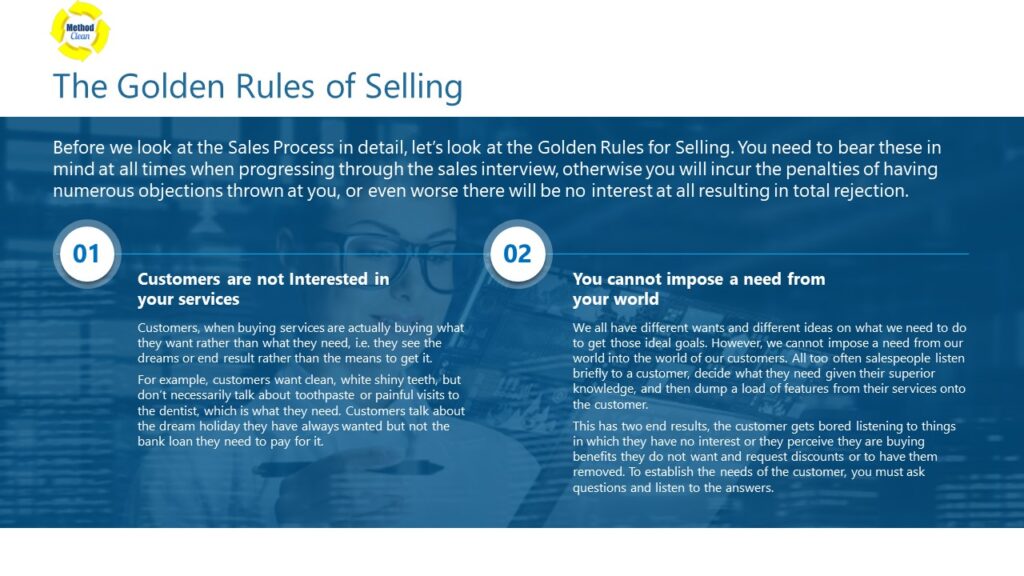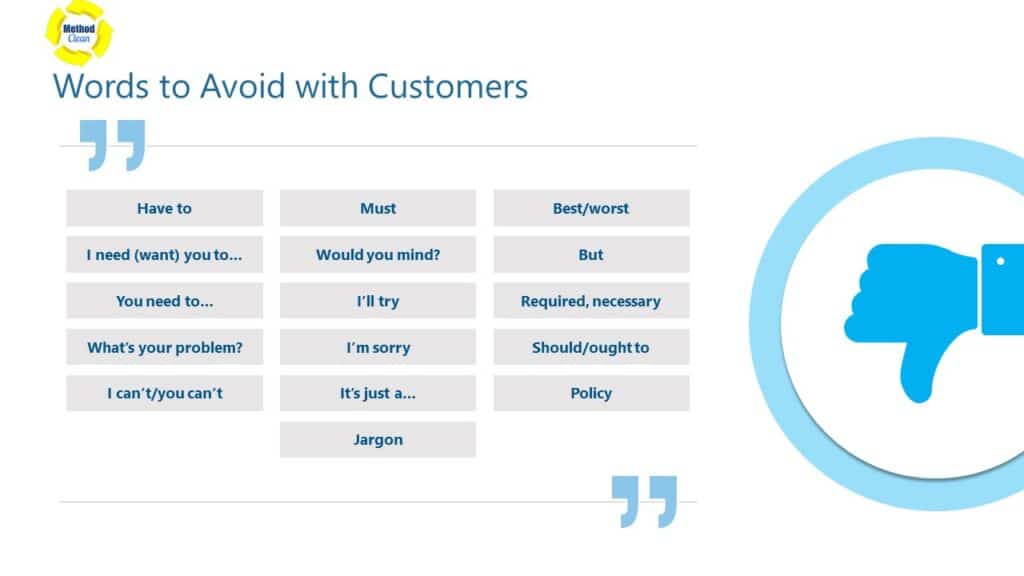Understanding and Avoiding Negative Questions in Cleaning Service Estimates
While positive questions aim to engage customers and arrive at shared solutions, there exists another category of questions that can have detrimental effects on the customer experience, especially when it comes to cleaning service estimates.
Unintentionally or out of habit, we may use these types of questions, resulting in customers becoming less cooperative or even awkward. Such questions can significantly damage rapport, making it crucial to be mindful of our communication approach during the estimation process.
Welcome to the 8th installment of the MethodCleanBiz Marketing Mastery Series, where we continue to navigate the dynamic landscape of professional selling skills. In an increasingly competitive business environment, the shift from selling as a luxury to an absolute necessity has never been more pronounced. The journey to mastering the intricate art of selling is a purposeful and methodical one, underpinned by a versatile skill set tailored to diverse scenarios.
Building upon the insights shared in our previous blogs, we now turn our attention to the negative implications of questions during the cleaning service estimate process.

Statements as Questions: Unveiling the Pressure Tactics
Statements disguised as questions can exert pressure on customers to agree, regardless of their actual sentiments. Frequently beginning with terms like ‘obviously’ or ‘clearly,’ these questions may imply that the customer should unquestionably agree. For instance:
“Our flexible cleaning schedule will obviously be important to you, won’t it?”
Hidden Assumptions: Pitfalls in Premature Deal Closure
These questions often emerge during attempts to prematurely close a deal, presenting the customer with choices when they haven’t agreed to move forward. For a cleaning service estimate, an inappropriate example would be:
“Would you like us to start cleaning tomorrow morning or afternoon?”
This question assumes the customer has already agreed to an appointment.
Barrier Questions: Balancing Positivity without Inducing Guilt
Commonly employed in ‘Barrier Selling,’ these closed questions aim to force a positive response. However, the question may induce guilt or negative feelings, as in:
“Are you concerned about the cleanliness of your space?”
While the answer may be yes, this style of questioning may not be the most effective for establishing a connection with the customer.
Front Loading: The Art of Avoiding Negative Responses
Questions designed to get a specific answer often receive negative responses, not necessarily due to the question but more likely because of the front-loaded nature. For instance:
“Bearing in mind the costs associated with thorough cleaning services, would you consider delaying taking action?”
“In a demanding industry like yours, how do you manage cleanliness concerns efficiently?”
Offering the Answer: The Directive Approach in Cleaning Service Estimates
Directive questions aiming for specific answers can make customers feel as if the salesperson is leading them. In the context of cleaning service estimates, a problematic example would be:
“What would you do if you found out your current cleaning service is not meeting your expectations? You’d be in a difficult situation, wouldn’t you?”
Conclusion:
It’s essential to avoid treating customers as if they lack knowledge or understanding. Negative questions during cleaning service estimates can hinder effective communication and compromise the overall client experience. As professionals in the cleaning industry, recognizing and rectifying such communication pitfalls is crucial for maintaining positive relationships with clients.

